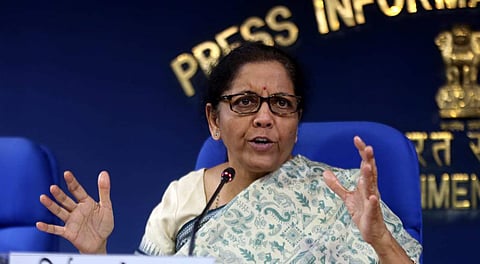

NEW DELHI: The Government is considering requests for financial relief for the beleaguered telecom sector, Finance Minister Nirmala Sitharaman said here on Friday, a day after two of the largest telcos – Vodafone Idea and home-grown Bharti Airtel announced combined second-quarter losses of over Rs 74,300 crore.
Sitharaman said, “it is the intention (of the Government) to address the concerns raised post the Supreme Court’s judgement.”
Bharti and Vodafone Idea are liable to pay some Rs 92,000 crore in back - fees and penal interest to the Government after a Supreme Court ruling in October which widened the scope for calculating adjusted gross revenues for a telecom firm to include income from non-telecom related earnings.
She also said that the Government is “not hurrying” to account for the money it will receive from telecom sector by way of fees etc., as the government was yet to take a final decision on companies’ requests for relief.
Telcos for long have been seeking a moratorium on payment of spectrum charges and waiver of penalties and interest on bank fees.
Even before the Supreme Court judgement, a bruising rate war had left the sector reeling in the red with huge exposure to banks.
Analysts say bankruptcies in the sector are possible given the huge credit exposure of this sector which stands at Rs 1.37 lakh crore.
Vodafone International’s investment in the Vodafone-Idea joint venture has already been written down to nil and VIL’s debt to equity ratio has risen to a record 4.5 against 1.24 at June-end 2019.
The Minister also said the Government would bring amendments to various relevant acts to ensure that the banking functions of cooperative societies are far more strictly regulated by the RBI.
After the recent collapse of the Punjab & Maharashtra Cooperative Bank, the issue of dual control over cooperatives has been underlined once again.
She added that discussions were on “on how to use promoters properties to help pay back depositors money.”